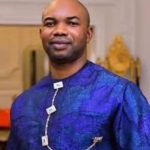Ganduje Plans Independent Hisbah Commission for 12,000 Dismissed Officers.
By Bala Salihu Dawakin Kudu, Democracy Newsline Newspaper
November 25, 2025
In a strategic move aimed at restoring dignity, purpose, and continuity to thousands of displaced religious marshals in Kano State, former Governor Dr. Abdullahi Umar Ganduje has unveiled plans for the establishment of an independent Hisbah Commission under the Ganduje Foundation. The initiative is designed to accommodate the 12,000 Hisbah officers dismissed by the administration of Governor Abba Kabir Yusuf shortly after assuming office.
Dr. Ganduje made the announcement on Tuesday while receiving a comprehensive report from the Committee on the Future of Dismissed Hisbah Personnel, a body he inaugurated earlier this year to review the circumstances surrounding the mass disengagement and propose sustainable solutions. The dismissed categories include officers from the Hisbah Corps, the Hisbah Marshal, and the Advisory Unit—all of whom previously played vital roles in guiding public morality, mediating local disputes, enforcing ethical codes, and supporting community sensitization programmes.
According to Ganduje, the proposed commission will serve as a self-regulated, non-governmental authority capable of preserving the vision of Hisbah work while protecting the careers of the affected officers.
“These officers were trained to safeguard moral values, support peaceful coexistence, and provide essential guidance to society. Their work does not end because a government changes,” Ganduje said. “Under the Ganduje Foundation, we intend to give them a stable institutional home and a new future through an independent Hisbah Commission.”
The committee that produced the report is chaired by the former Commander of the Kano Hisbah Board, Dr. Haruna Ibn Sina, a figure widely respected for his deep knowledge of Islamic jurisprudence and public leadership. Other notable members include Dr. Baffa Babba Dan Agundi, former Managing Director of KAROTA, along with senior Islamic scholars, civil society representatives, and former top Hisbah administrators.
Their report, submitted after months of consultations and field assessments, contains detailed findings on the welfare challenges facing the dismissed personnel, including loss of income, stalled careers, psychological strain, and disruptions in community-based programmes that previously relied on their presence.
Sources familiar with the document revealed that the committee recommended:
Immediate profiling and verification of all dismissed officers to determine eligibility for reinstatement under the new commission.
Re-training and re-orientation programmes to equip personnel with modern community-security and conflict-mediation skills.
A structured welfare system, including allowances, health support, and a pension framework tied to the Ganduje Foundation’s social welfare initiatives.
Reactivation of community outreach units, such as marriage counselling, drug abuse sensitization, and public ethics patrols.
Dr. Ibn Sina emphasized that Hisbah work has long been a stabilizing force in Kano’s social ecosystem. He described the disengagement of 12,000 trained officers as “a vacuum that must be responsibly filled.”
Political observers believe the creation of an independent Hisbah Commission could reconfigure Kano’s socio-religious landscape, especially at a time when the state faces rising concerns over youth drug abuse, street violence, and declining communal mediation structures.
Analysts also note that Ganduje’s intervention may carry political weight ahead of future elections, as Hisbah personnel—many of whom are community influencers—have strong grassroots connections across the state.
Nevertheless, supporters of the initiative argue that beyond politics, the plan offers a humane response to the plight of thousands of displaced workers whose livelihoods were abruptly halted.
With the report now in hand, Dr. Ganduje stated that the Ganduje Foundation will soon convene a high-level meeting to study the recommendations and develop a phased implementation roadmap. He assured the affected officers that their service to society remains valued and that steps will be taken to ensure they return to meaningful role
“These men and women dedicated their lives to promoting an ethical society. They deserve stability, respect, and opportunities to continue serving,” Ganduje said.












